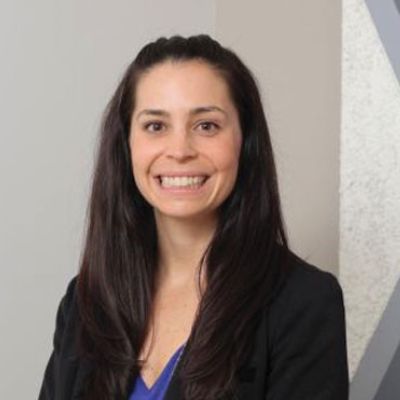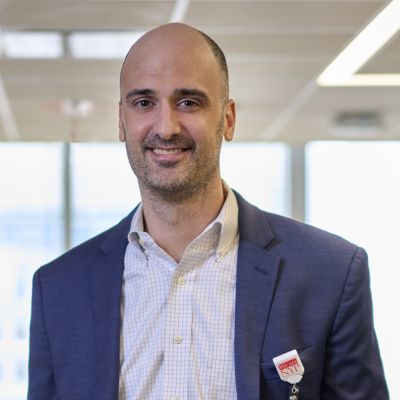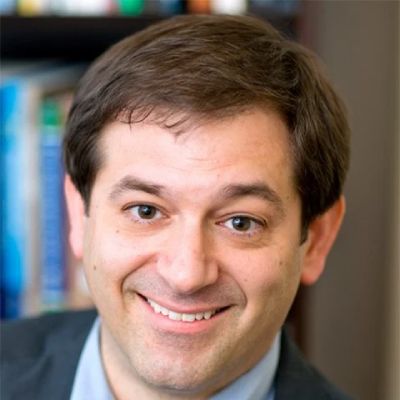In the United States, an estimated 48.7 million people aged 12 or older (17.3%) lived with a substance use disorder (SUD) in the past year. Recognizing the large impact that SUD has on patients and society at large, the theme for the 2024 American Psychiatric Association (APA) annual meeting was “Confronting Addiction from Prevention to Recovery.”
Held in early May in New York City, the APA conference brought together mental health clinicians from around the world for five days to learn from leaders in the field about the latest innovations in psychiatry and psychology. Dozens of NewYork-Presbyterian clinicians attended and presented at the APA meeting; below are highlights from some of those key presentations.
Opioids in Medically Complex Patients: Old Challenges, New Perspectives
Medical conditions that cause acute or chronic pain, that involve significant polypharmacy, or in which drug absorption or bioavailability are altered, represent some of the most daunting situations for psychiatrists recommending opioid treatments. Adrienne Mishkin, MD, MPH, MS, FACLP, DFAPA, and Luis F. Pereira, MD, psychiatrists in the Division of Consultation-Liaison Psychiatry at NewYork-Presbyterian and Columbia, participated in a panel discussion on the challenges of opioid management in patients with chronic conditions.
Dr. Mishkin discussed the complexities of treating patients with sickle cell disease (SCD), who often require opioids to manage pain crises. Despite research that shows the prevalence of opioid use disorders in adults with SCD is no greater than in the general population, SCD patients often describe experiencing stigma that they are addicted to or overuse opioids. She highlighted the types of biases – selection, recall, and unconscious racial bias – that may occur among physicians treating SCD in the emergency room that contribute to this stigma. Dr. Mishkin also urged psychiatrists working with adult SCD adult patients to keep sedating effects of psychiatric medication to an absolute minimum to allow for opioid treatments to be utilized without oversedation. Dr. Pereira reviewed the management of opioid use disorder in patients admitted with infective endocarditis, emphasizing the importance of effective treatment of acute opioid withdrawal symptoms as well as linkage to outpatient addiction treatment at the time of discharge.
Motivational Enhancement and Cannabis Use: Implementing a Brief Cannabis Cessation Protocol
Problematic cannabis use and cannabis use disorders (CUD) are on the rise amid an ever-changing legal landscape and increased potency and availability of cannabis products. NewYork-Presbyterian and Columbia mental health clinicians Samantha Lookatch, PhD; Elizabeth Evans, MD; and Aimee Chiligiris, PsyD, provided an overview of research regarding pharmacotherapy and evidence-based therapeutic treatment approaches for CUD. They also presented a novel, brief, motivational enhancement therapy protocol for CUD in combination with pharmacotherapy. This protocol shows promise in bolstering motivation to change, coping ahead, and building self-efficacy.
Affective Computing and the Mind: Harnessing Novel Technology to Improve Medical Education for Substance Use Disorders
Clinician attitudes are worse toward individuals who use substances than toward individuals with any other medical or psychiatric condition, and more interventions are needed to combat the stigma. Jonathan Avery, MD, Vice Chair of Addiction Psychiatry and Program Director of the Program for Substance Use and Stigma of Addiction at NewYork-Presbyterian and Weill Cornell Medicine, highlighted a unique collaboration between NewYork-Presbyterian, Weill Cornell Medicine, and the Massachusetts Institute of Technology Media Lab’s Affective Computing Group. It involves the development of a computer-based training module based on affective computing that records physicians’ facial interactions while they are interacting with virtual patients with SUD and provides real-time feedback to help the physicians enhance empathy and combat the stigma of addiction. His presentation concluded with a discussion about the future of medical education, exploring how the integration of innovative technologies like affective computing can revolutionize the field.
Responding to Reports of Sexual Violence on Psychiatric Inpatient Units
Individuals with SUD are at greater risk of being victims of sexual violence when admitted to inpatient psychiatric units. NewYork-Presbyterian and Weill Cornell Medicine psychiatrist Benjamin Brody, MD, and psychologist Victoria Wilkins, PhD, presented with Dr. Elizabeth Ford of Columbia Psychiatry and the New York State Psychiatric Institute and Dr. Kati Lake from Columbia Teachers College about the application of trauma-informed approaches in acute psychiatric care for SUD patients who experience sexual violence. They stressed the importance of having a dedicated hospital policy to ensure best practices.
Key Takeaways
Drs. Evans, Avery, and Brody said the conference left them feeling inspired and motivated to continue improving treatment for their patients, both those with SUD and with other psychiatric conditions. They share their reactions and key takeaways from the conference:
Dr. Evans: As providers in the field of SUD, we were thrilled that the theme of the conference this year was addiction. It was inspiring to see so much of the content focused on prevention, treatment, and recovery of patients with substance use disorders, and it was incredible to see the interest of the larger APA community for this topic. We walked away with hope — hope for our patients and their loved ones, and the future of the field.
Dr. Avery: Hopefully all the talks on substance use disorders had everyone leaving the meeting more excited about the field of addiction and all that can be done to help those struggling with SUD.
Dr. Brody: My big takeaway was the breadth and dynamism of psychiatry in 2024 in fields ranging from child psychiatry to geriatrics to interventional psychiatry to new technologies, and everything in between. It’s an exciting time to be practicing psychiatry and seeing the expansion of the field.






